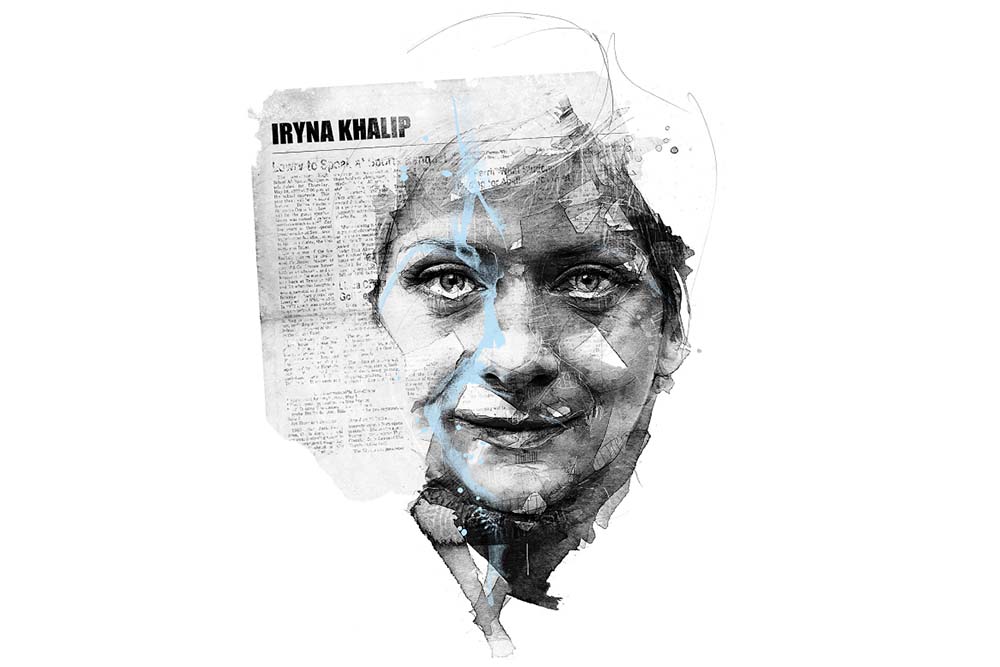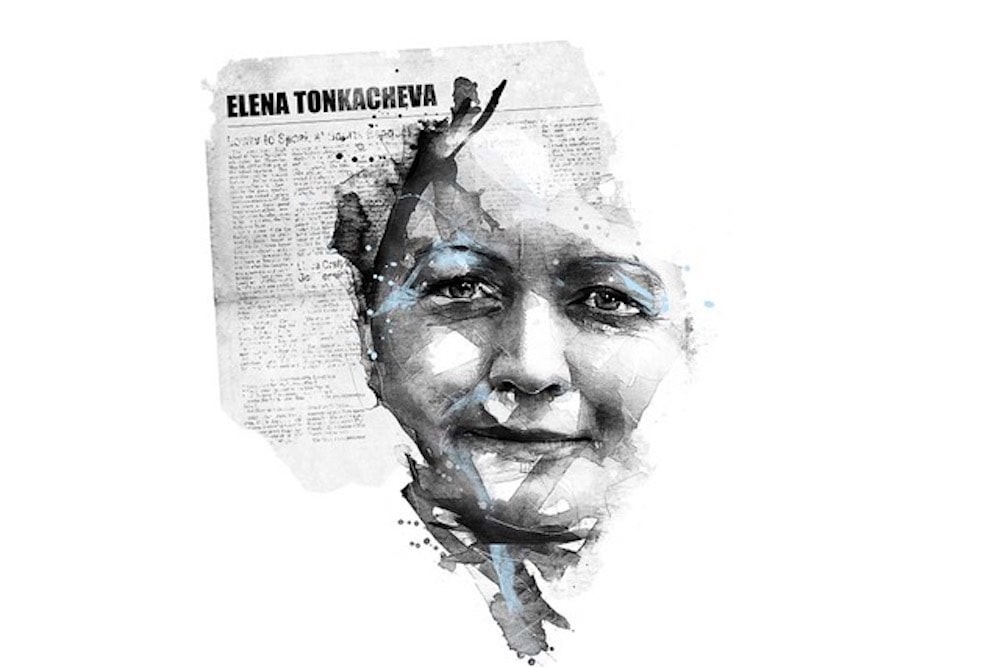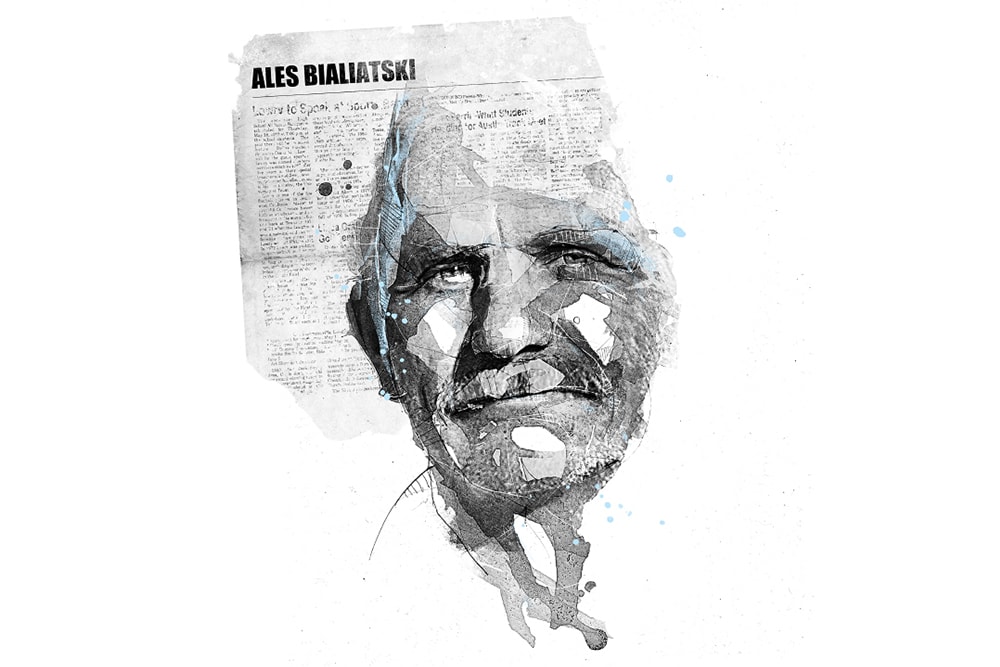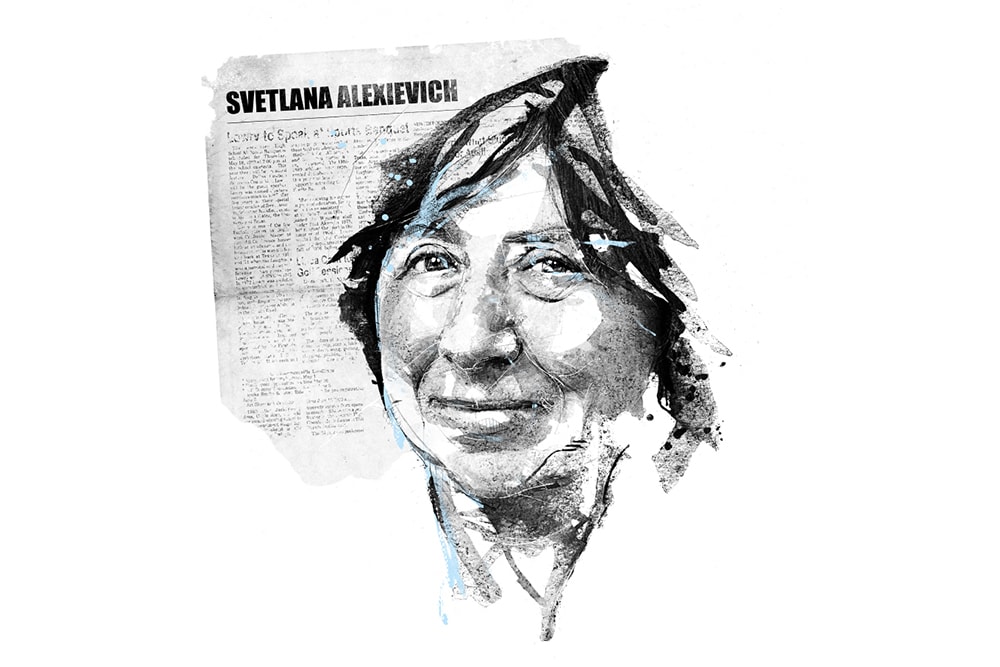Despite threats, assaults and imprisonment, Belarusian reporter Iryna Khalip remains an indomitable critic of President Alexander Lukashenko.
To think is not allowed. If [you] forget this, security-minded riot policemen will quickly remind you of it.
For human rights defenders, the 2006 murder of the Russian reporter Anna Politikovskaya holds an iconic place in the long tale of Russia’s attacks on free expression. But for those who want to silence inquisitive journalists – particularly women journalists – “Anna Politikovskaya” serves as sinister shorthand for “keep your mouth shut.”
The award-winning Belarusian reporter, Iryna Khalip, knows this first-hand. “Some years ago I was investigating the relationship between President Lukashenko, the Belarusian KGB and the [late] Russian tycoon Boris Berezovsky,” she recounted in a 2014 interview. “An article was written and sent off to my Moscow office. Ten minutes [later] I received a letter [saying], ‘You will meet the fate of Anna Politikovskaya.’ Politikovskaya was my colleague from Novaya Gazeta… The next day I was called from an unknown number saying, ‘You were warned. You will be killed tomorrow, bitch.'”
Khalip has been a journalist for over twenty years. For her work exposing and denouncing political corruption she received the 2009 Courage in Journalism prize. But her reporting has also earned her death threats, intimidation, all-night interrogations and beatings at the hands of the police and the Belarusian KGB.
Khalip’s first, personal taste of the brutality of Belarus’ security services came in 1997, when she was covering a protest against the country’s proposed unification with Russia. Although the demonstrators were peaceful, the police were not. Khalip was clubbed to the ground and dragged through the street by her hair. Her father, an elderly documentary-maker who was also covering the rally, was beaten unconscious. Unsurprisingly, the experience left her traumatized.
Belarus is often referred to as Europe’s last dictatorship. President Alexander Lukashenko has held on to power there since 1994, courtesy of a combination of violent repression and corrupt elections. The press is controlled, political and religious activities are tightly regulated and dissidents are imprisoned and tortured. Lukashenko’s regime has been repeatedly condemned for its human rights abuses by the European Union, barred from the Council of Europe and criticised in 2016 by the UN Special Rapporteur on the situation of human rights in Belarus for its “systematic harassment of those who attempted to practice their individual, civil, political, and other rights.”
The most traumatic experience of Khalip’s career came in 2010, when the Belarusian regime intensified its crackdown on opposition voices. On 19 December of that year, while she was giving an interview to a Russian radio station, Khalip was beaten up by the police and arrested. She had been reporting from an anti-Lukashenko demonstration that the police broke up using batons and stun grenades. Khalip was one of approximately 600 people arrested. Her husband, the opposition presidential candidate Andrei Sannikov, was also badly beaten and arrested. They were both taken to a KGB detention centre.
After her arrest, Khalip was placed in isolation, denied visitors and medical treatment. Her home was ransacked by KGB agents who also targeted her mother and her three-year-old son, forcing both of them to undergo testing for sexually transmitted diseases.
Khalip was spuriously charged with “organising mass disorder” and placed under strict house arrest for five months while she awaited trial. “Try to imagine a room with me,” she said in 2014, “my little son and two [live-in] KGB officers watching us 24 hours a day. I’m not allowed to work, write letters [or] have any contact with the outside world.” Khalip was only allowed tightly regulated visits from her mother and was forbidden from looking out of the windows. “The [KGB officers] followed me everywhere,” she said. “They would come into my bedroom every night just to make sure I was still there.”
On 16 May 2011, Khalip was convicted on the charges against her and handed a two-year suspended sentence. Her conviction provided a kind of ironic relief in that it freed her from the restrictions of house arrest. Her husband was convicted on the same charges and was handed a five-year prison sentence. He was pardoned and released in April 2012.
Since the expiry of her sentence in July 2013, Khalip has continued with her unremitting criticism of Lukashenko’s rule. Her anger at Belarus’ attempts to ‘modernise’ its public image without addressing any of the corruption at the heart of the regime is palpable in a 2016 article she wrote for Charter97. Khalip will not allow the truth to be airbrushed:
“I still cannot understand this endless flow of honey words poured out by social networks and even some media: ‘Minsk is a European city! Belarus is Europe! We are allowed to listen to jazz on Saturdays!.. You can legally drink and dance here, the DJ is on the balcony – it’s Europe, drunk girls lean out of a car!’… Don’t these educated people remember that there is no freedom in [a] ghetto?.. There are no European values in the dictatorship.. The rules are [simple] for everyone: sit still and do not interfere. Alcohol on Fridays, music on Saturdays, sex on Sundays, the execution[s] on Mondays; to think is not allowed. If [you] forget this, security-minded riot policemen will quickly remind you of it.”
There are clear parallels between the horrendous events of 2010 and the violent state repression of the anti-Lukashenko protests that began in the summer of 2020. Khalip’s analysis of these events has been much sought after and she has been vocal in calling for the release of all political prisoners and the imposition of international sanctions on the Belarusian regime.
Her attitude is one of defiant optimism. In a September 2020 article, in which she referred to the thousands of peaceful anti-Lukashenko protesters as “soldiers”, she described the experience of resistance thus:
“It has been the hardest summer of our lives. It has been the most beautiful summer of our lives. Now the whole world is praying and worrying about us. And deep down, it’s a bit jealous of us: no other country in the world has had such a wonderful summer.”
The ongoing crackdown on Belarus’s independent press has not deterred Khalip in her work as the Minsk-based correspondent for the independent Russian newspaper Novaya Gazeta. Neither has it curbed her outspoken style, as an October 2021 article on the authorities’ gross mishandling of the COVID-19 pandemic – due, she writes, to “their cynicism, insolence and swinishness” – demonstrates.
Illustration by Florian Nicolle



